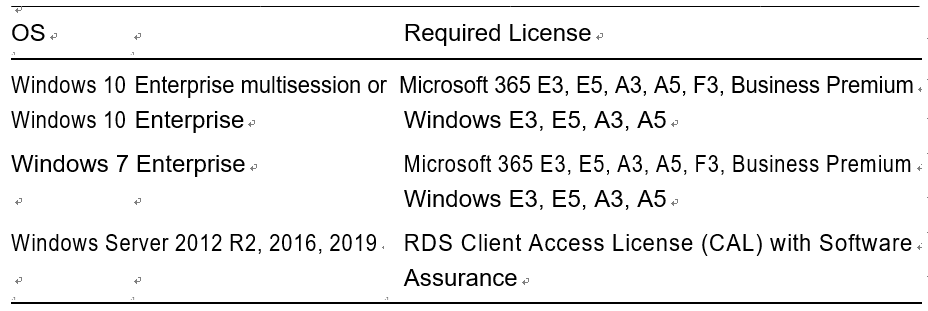Recommended Operating Systems for an Azure Virtual Desktop – Design the Azure Virtual Desktop Architecture
By Leatha King / February 2, 2024 / No Comments / Describe Service Level Agreements, General Availability, Microsoft AZ-140, Microsoft Exams
Recommended Operating Systems for an Azure Virtual Desktop
Azure Virtual Desktop supports different operating systems for different purposes.
Table 2-2 covers operating system and required licenses for AVD.
Table 2-2. Azure Virtual Desktop License Requirement

As you know, each operating system has different features that the user can use. The following are the high-level scenarios based on which you can select based on your requirements:
•\ Windows 10 Enterprise multisession: Windows 10 multisession is recommended for pooled host pools when we have users with the same application/software requirements and they don’t rely on any system-specific setting/configuration. Multiple users can log in (different session) on a Windows 10 multisession operating system, which helps to optimize costs. You have a pooled desktop support application with user-centric installation so that any user log in to the session host can access the application and the application configuration gets stored in user profile.
•\ Windows 7 Enterprise/10 Enterprise: Both are recommended for personal Azure Virtual Desktop where users are dependent on a system-specific configuration or need a highly intensive or dedicated system configuration to perform certain tasks. Windows 7 is still supported by Azure Virtual Desktop in case the user wants to use an application supported on a legacy operating system.
•\ Windows Server 2012 R2, 2016, 2019: All server operating system are recommended if the user is going to use an application supported only on a server system or services available on a server for day-to- day work. If your organization already has RDS CALs and want to use them instead by buying other Azure Virtual Desktop supported licenses, then the server operating system can be used in AVD.

